And Now, Japanese Trade Talks Sans The Silly Propaganda

Now that the U.S. and Japan have agreed on a watered-down version of the Trans-Pacific Partnership trade negotiations (America will keep its beloved chicken tax for at least another decade, Japan will protect its rice farmers from the evils of cheap American rice,) negotiations between the EU and Japan about a trade pact are getting underway, with considerably less drama.
The lead-up to the U.S.-Japanese discussions was big on harebrained hubris that played well at home but caused rolling eyes in more worldly circles. For years, Detroit carmakers accused Japan of closing its markets to American cars that few want in Japan and that Detroit makers don’t really try to sell to the Japanese in earnest. While a Japanese yen got stronger and stronger to the point of killing the Japanese export machine, a cabal of Detroit propagandists, UAW operatives and Democrat lawmakers could tell each other the story of Japanese currency manipulation, detracting from the fact that America was busy devaluing its dollar. And while the U.S. market is ringfenced by onerous regulations that allow only deep-pocketed and very determined importers to sell their cars in the U.S., the Detroit propaganda machine successfully sold the story of insidious albeit hard to find “non-tariff barriers” that allegedly close the Japanese market tighter than a you-know-what.
Compared to this lunacy that would have made a Goebbels (“The bigger the lie, the more people will believe it”) envious, the discussions between Japan and Europe are a down-to-earth exercise in realpolitik. The EU position is simple: The EU charges 10 percent tariff on imported cars, Japan charges none. So, what can Japan offer for the EU to drop its customs duty?
“The EU’s focus appears to be on regulatory issues, such as treatment of minicars. European automakers, like their Japanese rivals, excel in compact models. But the European Automobile Manufacturers Association complains that Japan gives minicars preferential treatment, including tax advantages, that essentially shuts out European competitors.
The EU’s demands are likely to include allowing European carmakers to export to Japan as long as they meet EU safety standards. With sales in their home market suffering from the economic chill caused by the euro crisis, the Europeans fear added Japanese competition. The EU is offering to lower tariffs only to the extent that Japan complies on deregulation.”
An alignment of EU and Japanese automotive standards should be quit doable. Japan and the EU are UNECE members, however, Japan so far has adopted only a subset of the UNECE regulations. The kei car issue is a bit tougher. Relaxed kei car regulations that would extend the kei car benefits to slightly larger and slightly better motorized versions could include a number of European models, and would at the same time be welcomed by Japanese makers who could sell what currently remains largely a Japanese oddity in foreign markets. Also, European farmers aren’t big on rice, and both Europe and Japan share a common disdain for gene manipulated food.

Bertel Schmitt comes back to journalism after taking a 35 year break in advertising and marketing. He ran and owned advertising agencies in Duesseldorf, Germany, and New York City. Volkswagen A.G. was Bertel's most important corporate account. Schmitt's advertising and marketing career touched many corners of the industry with a special focus on automotive products and services. Since 2004, he lives in Japan and China with his wife <a href="http://www.tomokoandbertel.com"> Tomoko </a>. Bertel Schmitt is a founding board member of the <a href="http://www.offshoresuperseries.com"> Offshore Super Series </a>, an American offshore powerboat racing organization. He is co-owner of the racing team Typhoon.
More by Bertel Schmitt
Latest Car Reviews
Read moreLatest Product Reviews
Read moreRecent Comments
- Jeff My wife owned a 2013 AWD CRV since new it has been trouble free but I am not a fan of turbos so I would lean toward the Rav 4. If I were getting a hybrid it definitely would be a Rav 4 with Toyota's hybrid system being the best. Honestly you could not go wrong with either a CRV or a Rav 4. My third choice would be a Mazda.
- 3-On-The-Tree We like our 2021 Rav4 non hybrid.
- Vatchy FSD never has been so what is with the hype about robo-taxis? You would need the first in order for the second to work.
- EBFlex Honda all day long. Why? It's a Honda.
- Lou_BC My ex had issues with the turbo CRV not warming up in the winter.I'd lean to the normally aspirated RAV 4. In some cases asking people to chose is like asking a Muslim and Christian to pick their favourite religion.



















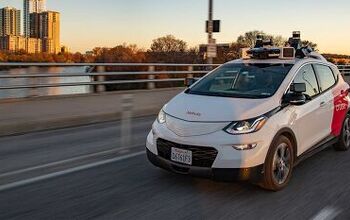



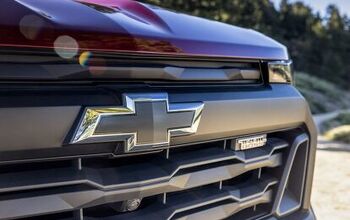



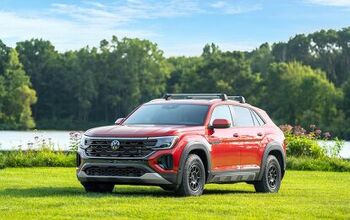

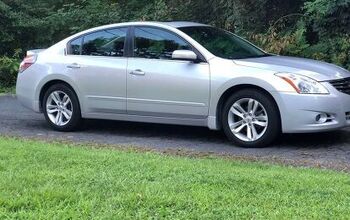

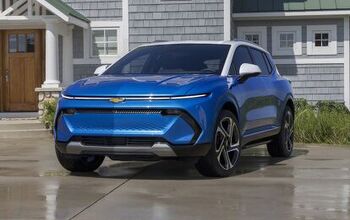


Comments
Join the conversation
bertel, as the wave of left wing parties take over more governments in Europe the pressure ti circle the wagons grows. So the speed and ease if negotiations between Europe and Japan is driven by political considerations. True?
Far as I know, people in the EU vote for candidates to the European Parliament in Brussels as well as their own. Then they have bureaucrats as adjuncts to the Brussels elected mob. This means the average citizen has two governments bossing him/her around, just like the federal systems in the US and Canada, although most people tend to pay little attention to the EU bureaucrat until they come up with edicts about how straight a banana has to be before it can be sold, or how eggs must be sold by weight. Typical ideas from people who don't have a real job and can daydream all day. The UNECE regulations which Ford and Big Al from Oz think the US should adopt are another thing. Who says they're better than US regs? All we are urged to do is join the parade, regardless. The new type approvals mean that you can't modify your vehicle - that will go down well in North America. If you think manufacturers are gaming EPA mileage estimates, let alone the ridiculously optimistic Canadian ones, then the EU estimates apply only on Mars, and serious "optimizing" occurs. Noise regulations are poor, etc. If the best of UNECE and US schemes were thoughtfully combined, then sure go for a world standard. Otherwise, why bother? The following link touches on particularities of the EU regs. One commenter works for the Australian arm of Ford, and has overall the most-reasoned outlook on car design I've read anywhere. He feels some US tests are superior to UNECE. http://forums.autosport.com/lofiversion/index.php/t182412.html I wonder which subset of UNECE Japan does accede to, and gather from Bertel that it's all but Kei cars. If that goes away, will the roads of Japan fill up with the giant tiny Fiat 500 TwinAir with 900cc of throbbing two cylinder power? I think these negotiations between Japan and the EU will drag on for years. Canada's has. The reason is simple: the EU position is that they are correct and everyone else is wrong, therefore no negotiation is required, just do it our way. And a fat lot of good it has done them so far.